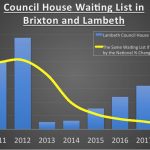When tenants enter into an assured shorthold tenancy, which is the most common form of rental agreement, the enter into a contractual agreement with the landlord. This agreement provides the landlord and tenant with some rights, but it also creates responsibilities for the parties. This how to rent guide, which has been updated as per the information contained in the June of 2018 update, is of benefit to existing tenants, new tenants and people who are considering renting.
When a tenant moves into rental property, the landlord must provide them with a copy of the most recent guide, but the guide contains a lot of information relevant to the stages before a person moves in. Therefore, this guide details the key points of the guide, hopefully proving guidance for people who would like to learn as much about the rental process in advance or who would like a refresher of the main points.
Things to consider before a tenant begins the rental process
An important thing for a tenant to consider is the length of tenancy they are looking for. A tenant can request a tenancy length between six months and seven years, but the landlord must agree with the length.
It is also imperative that tenants understand how much they can afford to pay in rent each month. Each tenant is unique and will have their own budget to consider but as a rough estimate, 25% of our take home pay is a strong starting point for what people can afford to pay for rent. Tenants who are entitled to Housing Benefit or Universal Credit may be entitled to support with some or all their rent.
Tenants should also consider where they would like to live and what local facilities they require in their local area before committing to renting in a specific area.
A landlord will likely request the following documents from a tenant:
- Something which confirms their identity
- A document which confirms their immigration status
- Information relating to their credit history
- Information relating to employment status
Currently, all landlords must check a tenant has the right to rent property in the UK and will have to make copies of these documents and retain the copies.
A tenant’s deposit must be protected
A landlord is legally required to place the tenants deposit into a Government backed Tenants Deposit Scheme, a TDP. Prospective tenants should enquire about rules regarding children or pets in the property and it is also good to clarify who is responsible for what bills. All this information should be detailed in the tenancy agreement, which a tenant should read fully before they agree to move into a property, but it can be helpful to ascertain this information as quickly as possible.

The tenant must be content that the property is safe for them to live in and the “How To Rent A Safe Home” guide provides insight into how to identify hazards in a property.
One of the most important documents when a rental agreement is being made is an inventory. This details the contents and condition of the property when a tenant moves in and it should be agreed upon by the tenant and landlord. The contents of this document will be used as the basis for judging any deterioration to the property during the tenancy.
Documents that the landlord must provide the tenant with, at the point of moving in, include:
- A copy of the How To Rent guide, in either a hard copy or PDF document
- The gas safety certificate, if there is a gas installation in the property
- Paperwork pertaining to the deposit
- The Energy Performance Certificate, the EPC
- A record of electrical inspections
Information relating to smoke alarms and carbon monoxide alarms, including proof that they are in working order on the date the tenant moves in.
The tenant is required to:
- Pay the rent on time and in full
- Pay any other eligible bills in full and on time
- Care for the property
- Be considerate to neighbours and the local community
There is a lot for tenants to consider when moving into rental accommodation, but this guide provides a handy outline of the most important aspects. Any landlord or tenant looking for guidance on renting, please contact me and I will be more than happy to help.

Matylda Nowak
CEO, Kings Accommodation



